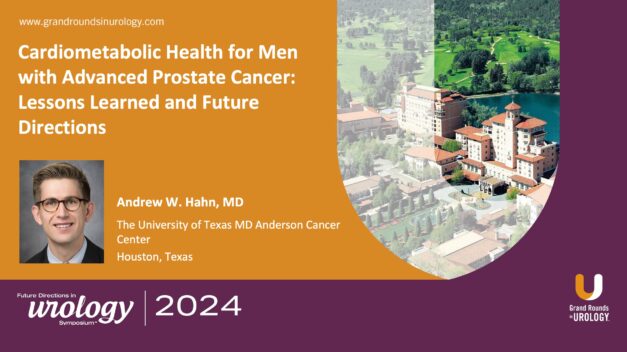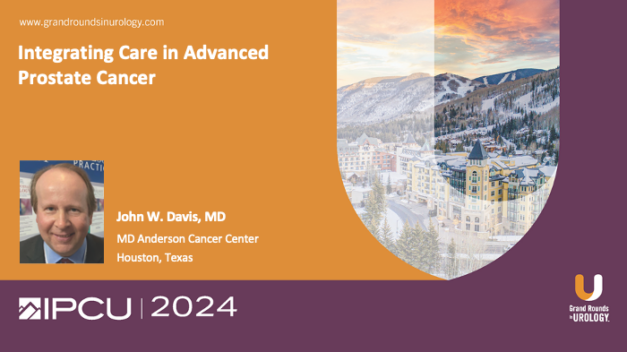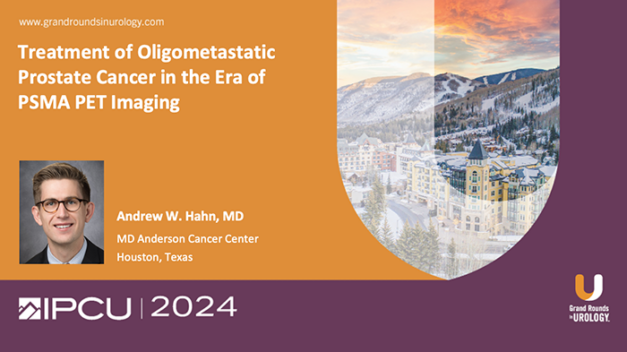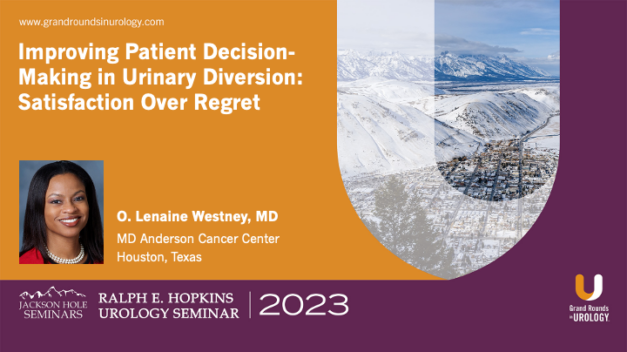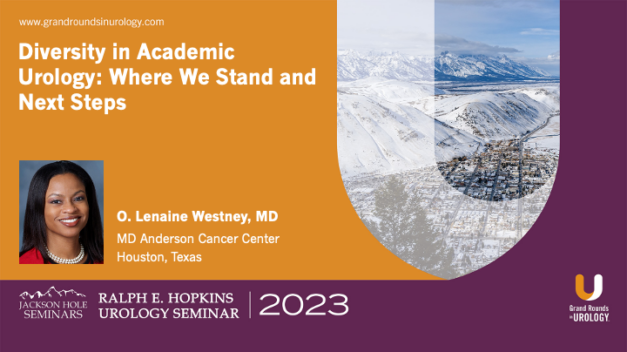Cardiometabolic Health for Men with Advanced Prostate Cancer: Lessons Learned and Future Directions
Andrew W. Hahn, MD, addresses cardiometabolic health in men with advanced prostate cancer, focusing on the impacts of hormone therapy and strategies for managing cardiovascular risks.
In this 10-minute talk, Dr. Hahn highlights the common overlap of prostate cancer and cardiometabolic risk factors and underscores the necessity of evaluating cardiovascular risk in prostate cancer patients. He reviews data indicating that androgen deprivation therapy (ADT) can indirectly increase cardiovascular risks by altering body composition and intensifying metabolic syndrome. Adding androgen receptors nearly doubles cardiovascular event risk. Despite FDA advisories, guidelines, and the availability of cardiovascular risk assessments, many patients undergoing ADT lack appropriate cardiovascular monitoring.
Dr. Hahn highlights future directions in identifying men at heightened risk for cardiovascular events using imaging and genomic biomarkers. Promising approaches include myocardial perfusion PET scans and exploring genomic markers that correlate with cardiovascular toxicity in hormone therapy. Managing cardiometabolic health in advanced prostate cancer requires careful risk assessment and personalized approaches. Biomarkers are needed to effectively predict cardiovascular complications from hormone therapy.
Read More
